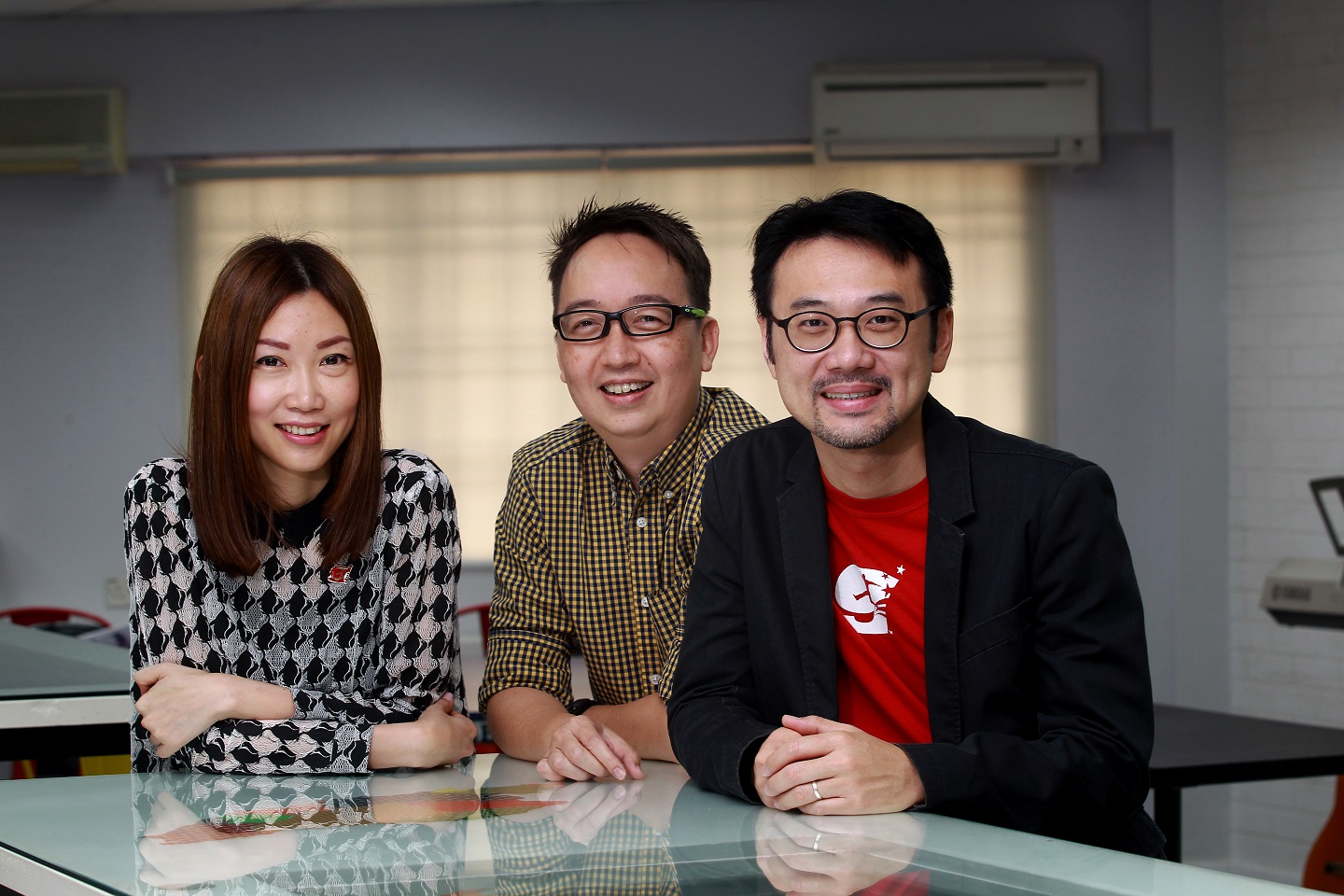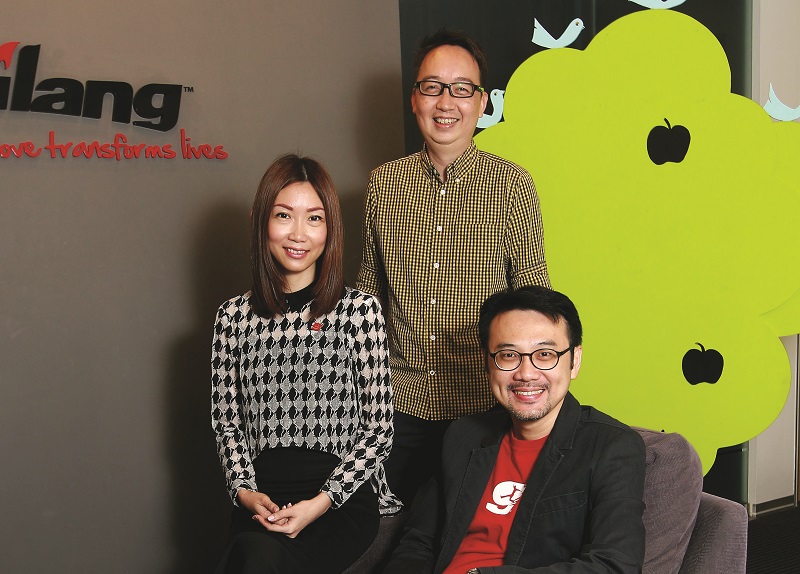
From left: Cheah Huay Ping, Nicholas Foong and founder Daniel Tan
All great things begin with an idea, or as Daniel Tan, founder of charitable foundation Yayasan Generasi Gemilang (GG), puts it, “a crazy idea”. “I never imagined setting up an organisation like this ... we — a few friends and I — were crazy enough [to do it] because we wanted to give back to society. We decided that we should just stop complaining and do something,” he says.
The founding of GG stemmed from Tan’s experiences in life. Growing up in a troubled family, he was exposed to many social and economic problems. Yet, instead of dwelling on the bad times, he chose to focus on people who were a beacon of hope.
Having benefited from the kindness and generosity of his mentors, the 37-year-old Tan feels strongly that “every child needs somebody to believe in him or her”. “As one person, I cannot change the world, but I can change the world of one person,” he says.
Led by a desire to pay it forward, Tan and his friends (who have since moved on to other endeavours) initiated what was then known as Project Generasi Gemilang.
Their aim? To champion the underserved. The term “gemilang” itself represents the foundation’s aim to be exemplary.
The foundation began its mission by improving the lives of underprivileged children and families by increasing their access to quality education — something that GG believes will help them break the poverty cycle. The ultimate goal is to ensure they have a better future than the generation before them.
Today, GG is run by a group of dedicated staff, two of whom — Cheah Huay Phing and Nicholas Foong — sit in on this interview. Cheah, 36, is the head of youth and education services while Foong, 49, is the director of services.
GG was registered as a not-for-profit social welfare organisation in March 2010. Four years later, it was incorporated as a charitable foundation, and Tan dived into the depths of service, pursuing his community work full-time. Prior to that, he spent nine years in the IT industry as a corporate trainer and consultant. His commitment to help raise an exemplary next generation is paramount as he believes that “a generation is only as good as the virtues that define it”. To achieve this, all of GG’s projects focus on instilling good values and character-building.

In the early days of Project Generasi Gemilang, the communities they worked with were the poor in Selayang and PPR Sri Pantai flats. Nine years on, Yayasan GG continues to work with these groups as well as a number of other needy families, including those in Sarawak.
The focus of GG is children and youth. “To lead a healthy life, children need a healthy environment, and [the] family [environment] is the most important,” says Tan.
“Raising a family is stressful enough, and low-income households may have added stressors that others are not aware of. For instance, communication among family members can be challenging at times, and when you have a sole breadwinner who is a daily wage earner, other problems may crop up if he or she is unable to work because of illness,” Foong explains.
“We should not let such problems stop their children from getting an education because like any family, they also have aspirations for their young ones.”
Foong oversees the foundation’s youth, children and family services as well as its communications teams. He has worked on many projects, including Cyber Wellness, a programme that mentors youth to be positive and balanced online users.
Raising a family is stressful enough, and low-income households may have added stressors that others are not aware of. For instance, communication among family members can be challenging at times, and when you have a sole breadwinner who is a daily wage earner, other problems may crop up if he or she is unable to work because of illness
Cheah, who was previously in client servicing in the banking, advertising and airline industries, was initially a part-time volunteer. Then she felt that helping Tan out only on weekends was not enough.
According to Cheah, the biggest challenge faced is issues related to self-esteem. “A lot of them lack self-worth and purpose in life. They say they are often told that they are ‘not good enough’ or ‘good for nothing’ … no one speaks of hope. So we tell them that we believe in them and want to see their potential.”
One programme to help them find their self-worth is Glow. It guides young women to become individuals with a sense of identity and purpose.
Another programme by GG is Super Sarapan. This provides the first basic need of a child — food. It came about after the foundation discovered that many children went to school and returned home on an empty stomach. GG is currently feeding 679 children from low-income households in 16 schools in the Klang Valley and Sarawak. It has served almost 90,000 meals since 2015. The icing on the cake is probably the rising attendance of the beneficiaries in school.
Besides sponsors and well-wishers, GG attributes the smooth running of its programmes to volunteers, who are trained via “service learning”. “We want to make sure that their journey with us is a pleasant one. We don’t use people just to achieve our goals,” says Cheah.
For the trio, the success stories are the strongest indication that GG is on the right path. “The children who first came to us for assistance have now become mentors in their communities,” says Cheah.
This year, GG is taking a serious look at the impact of its programmes. But one thing is clear — its secret of success lies in the principle it upholds: “It is not about doing charity work; it is about restoring dignity.”
For more information on Yayasan Generasi Gemilang’s projects and how you can be part of them, visit www.gengemilang.org.


